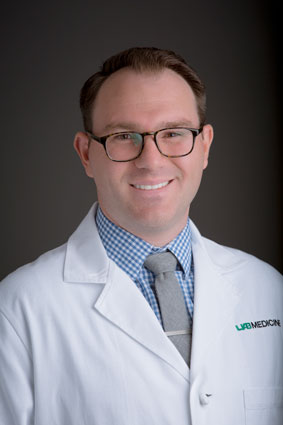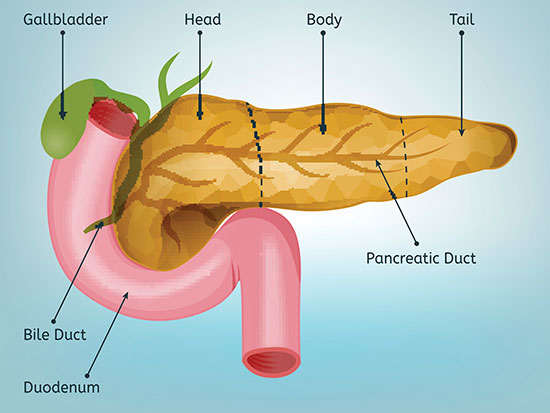 J. Bart Rose, M.D.The University of Alabama at Birmingham has established the first multidisciplinary program in the state to treat diseases of the pancreas and bile ducts with the creation of the Pancreatobiliary Disease Center within the School of Medicine.
J. Bart Rose, M.D.The University of Alabama at Birmingham has established the first multidisciplinary program in the state to treat diseases of the pancreas and bile ducts with the creation of the Pancreatobiliary Disease Center within the School of Medicine.
The center will link medical professionals from across UAB Medicine involved in managing pancreatobiliary diseases, including pancreatic cancers, pancreatic cysts, pancreatitis, bile duct and gallbladder cancers, bile duct injuries and complex benign disease of the bile duct.
“While malignancies of the pancreas and bile duct present their own unique challenges to treatment, so do the litany of benign disease affecting these organs,” said J. Bart Rose, M.D., assistant professor in the Department of Surgery and director of the center. “Both acute and chronic pancreatitis can be very difficult to treat. We have designed an infrastructure to support and treat patients with these diseases with cutting edge techniques and minimally invasive approaches.”
The Pancreatobiliary Disease Center is made up of advanced gastroenterologists, interventional radiologists, medical and radiation oncologists, critical care intensivists, surgeons, pathologists, genetic counselors and specialty support staff.
“Our multidisciplinary approach ensures patients with complex benign or malignant problems involving the pancreas or bile duct will be offered appropriate and modern treatment, in an expedited fashion, all done in conjunction with their local providers,” Rose said.
The pancreas is an endocrine gland that produces important hormones, including insulin. It also aids in digestion by producing several enzymes that function in the small intestine. The bile duct is a system of tubes that carry bile, which is essential for digestion, from the liver. Cancer in these organ systems are among the most deadly and difficult to treat malignancies.
 Rose said the program will be a statewide referral center. Since pancreatobiliary diseases can be challenging and difficult to treat, many are best seen at a major academic medical center such as UAB, which can provide cutting edge treatments and services that may not be available in local hospitals. UAB also offers access to genetic testing and research opportunities, including participation in innovative clinical trials.
Rose said the program will be a statewide referral center. Since pancreatobiliary diseases can be challenging and difficult to treat, many are best seen at a major academic medical center such as UAB, which can provide cutting edge treatments and services that may not be available in local hospitals. UAB also offers access to genetic testing and research opportunities, including participation in innovative clinical trials.
“As a referral center, our role will be to fill the gaps from local medical providers,” Rose said. “UAB will be able to offer the latest in surgical and medical treatment approaches, as well as tumor sequencing. We will also be doing data collection and outcomes research, so we will be able to select the best therapeutic approach for each patient based on the accumulated data available, ensuring that we offer each patient the best option for their situation.”
For more information on the UAB Pancreatobiliary Disease Center, call 1-833-UAB-4PDC (1-833-822-4732).
